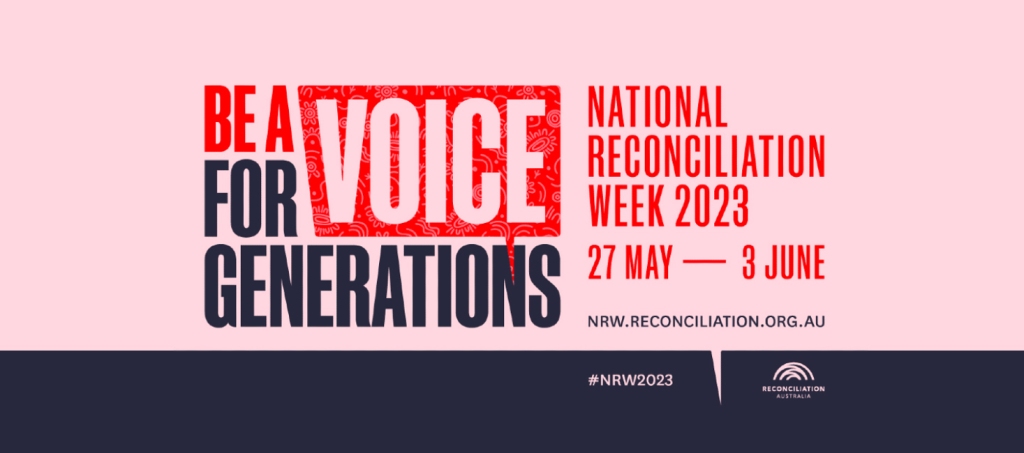
Australia is a diverse country with the oldest continuing living culture in the world, and a colonial past with devastating consequences for First Nations Australians. Reconciliation Australia describes five dimensions of Reconciliation: historical acceptance, race relations, equality and equity, institutional integrity, and unity. ‘Be a Voice for Generations’, the theme of Australia’s National Reconciliation Week 2023, reminds us that Reconciliation is everyone’s responsibility, and that it is a journey of coming together to reflect on past generations, while building a better tomorrow for future generations.
It is my privilege to have been born and raised on Whadjuk Noongar Country, and to have lived and worked in Naarm on the lands of the Kulin Nation. I am now getting to know the traditional lands, waterways and language of the Kaurna people of the Adelaide plains, as well as of other South Australian lands and peoples.
As a non-Indigenous person and second-generation Australian whose parents were both born overseas, for me engaging in Reconciliation means learning about local Indigenous language, culture, histories, stories, and knowledges. It is about seeking out and listening to Aboriginal and Torres Strait Islander voices, as well as considering how I might use my own voice. It means acknowledging and reflecting on traditional Country at events, in meetings, and on my podcast, The Edu Salon. It means seeking out, citing, and recommending the work of Indigenous scholars, educators and artists. For example, I have enjoyed listening to outstanding Indigenous scholars Marnee Shay and Kevin Lowe, both of whom advocate for strengths-based approaches to education for Aboriginal and Torres Strait Islander young people in schools.
In a school context, Reconciliation means having, revising and refining a school Reconciliation Action Plan. It means engaging in conversations about Reconciliation at student, staff and board tables. It means an active Reconciliation Action Plan Committee that meets regularly, includes students and staff, and is focused on collaborative action. It means teachers, from early learning through to Year 12, considering how cultural competence is built through curriculum, pedagogy, texts, issues explored, and language used and learned. It means engaging in, and deeply reflecting on the significance of, cultural protocols such as Welcome to Country and Acknowledgement to Country, including in local language and by local people. It means schools considering student learning and scholarship opportunities, enrolments policies, human resources processes, assembly content, events protocols, student experiences beyond the classroom, and school-wide anti-discrimination strategies. It means providing opportunities for staff and students to engage in reflection, learning, service, and culture. It means considering how to build mutually beneficial relationships with Aboriginal and Torres Strait Islander stakeholders and communities. It means working to consider how we can develop spaces, supports and opportunities for Indigenous young people.
Contributing to the ongoing work of Reconciliation means all Australians engaging regularly in meaningful discussion about, and taking action on, Reconciliation. It means celebrating, amplifying, and making space for the voices of Aboriginal and Torres Strait Islander peoples and communities. It means enshrining an Indigenous Voice to Parliament in our Constitution. It also means acknowledging the violent, unjust, uncomfortable colonial history of our nation and the ongoing intergenerational trauma experienced by Aboriginal and Torres Strait Islander peoples. It means considering what behaviours and structures are normalised in our organisations and systems, who benefits from these, what unconscious biases exist, and how we might recognise and interrogate our own ability to participate in a range of opportunities not equally available to all Australians.
Beyond recognition and acknowledgement is action: considering how we might be an effectual part of positive change towards reconciling the peoples of Australia, every day.

Pingback: Reflecting on 2023 as we move into 2024 | the édu flâneuse